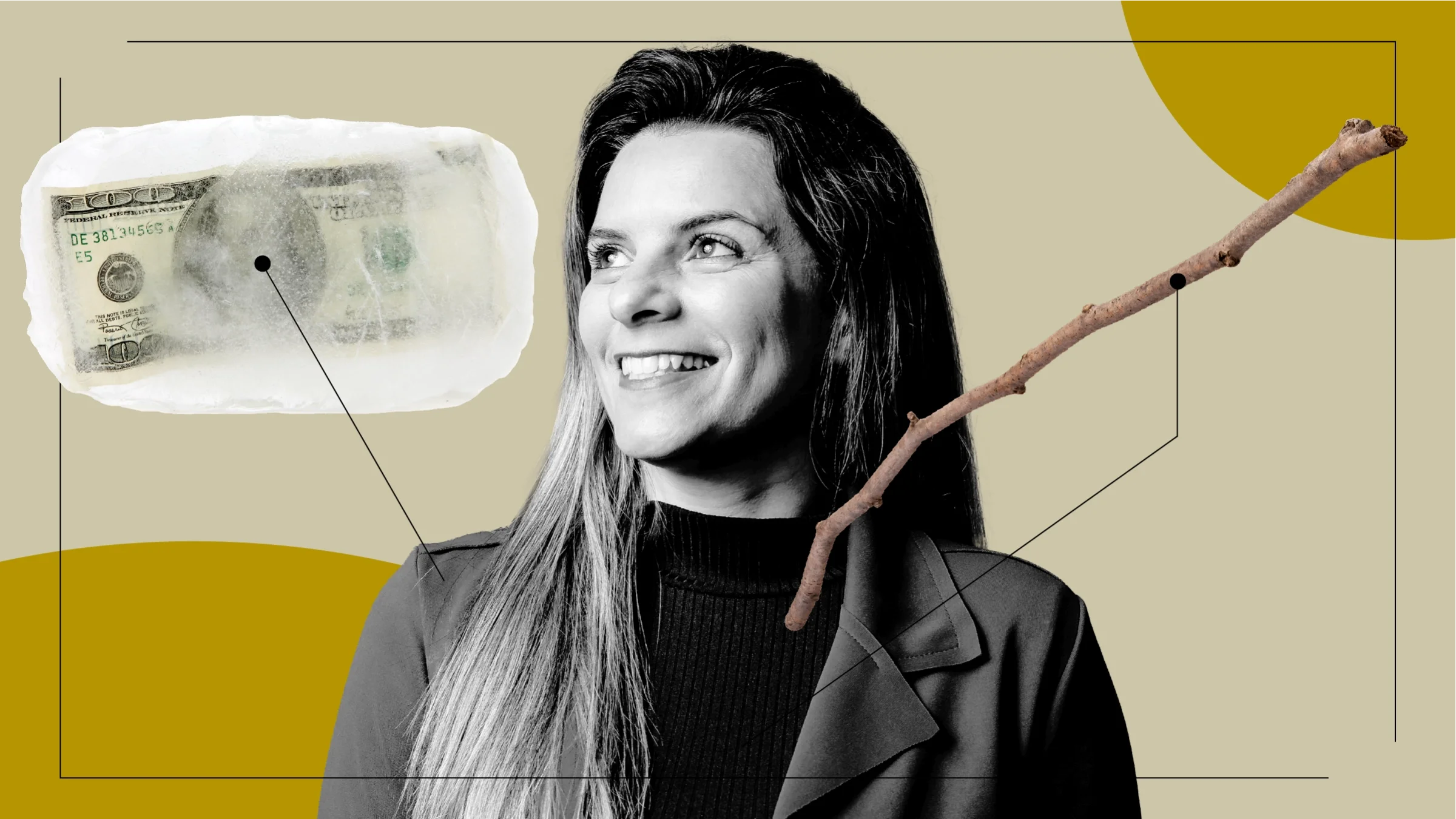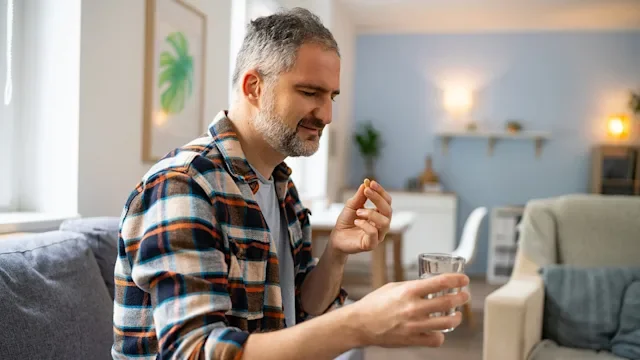Key takeaways:
You’ll need to inject yourself with hormones during the process of freezing your eggs.
This process also requires getting frequent ultrasounds and bloodwork.
The final step is a short surgical procedure to retrieve the eggs.
Deciding to freeze your eggs can, quite literally, be life-changing. The process consists of collecting eggs from the ovaries and then freezing them, so they can be preserved for future use. Your egg quality declines with age, so having healthy eggs to utilize can increase the likelihood of getting pregnant later on.
Egg freezing is the same process as the first steps of in vitro fertilization. For nearly 2 weeks, you’ll need to inject yourself with hormone medications that encourage eggs to grow. You’ll also go to the fertility clinic for frequent bloodwork and ultrasounds to monitor your progress. Once the eggs have grown, you’ll undergo a surgical procedure to retrieve them. And a fertility doctor will confirm they’re mature, which means they could become fertilized in the future.
Here, three women describe their experiences with this process. Keep reading to learn about what it feels like to freeze your eggs.
Search and compare options
Freezing your eggs can be an all-consuming journey
Dima El Machnouk has an ongoing WhatsApp chat with around 100 women from her MBA class. As they entered their 30s, one topic came up again and again: egg freezing.
“They kept mentioning it, and I was very curious to learn more,” says Dima, a 31-year-old co-founder of a career-coaching company in San Francisco. After meeting with a handful of the women, she decided egg freezing was right for her, too.
Dima ultimately did three rounds of egg freezing. During the first round, she got 10 eggs. The second time, she tried for embryos, but didn’t get any results. The third round produced three embryos.
“It was a rollercoaster of a journey from June to September 2022,” she says
During her initial consult, the doctor Dima was working with provided her with a baseline measure of her egg quantity based on testing. Dima’s anti-Müllerian hormone (AMH) level, which indicates egg count, was low. Her level was 0.5 ng/mL, which meant she might have trouble producing viable eggs.
“That first appointment was like a biology class in high school,” she says.
The next step was starting injections at home to stimulate her ovaries, so they would produce eggs that could then be extracted. For about 2 weeks, she gave herself two to four shots a day in her stomach. The shots had to be timed very precisely. For Dima, that usually meant doing them in the evening.
“It was more discomfort than actual hurting,” she says. “My husband would put on music and try to entertain me. He’s terrified of needles, so he would just look away.” Even though the pain wasn’t intense, the side effects were, she adds. She felt bloated and had mood swings.
Every couple of days, Dima went back to the fertility clinic for bloodwork to check her hormone levels and an ultrasound to see how many eggs were growing. “You’re basically sitting there with a stick up your vagina for 10 minutes,” she says. “It is uncomfortable.”
Then, when the eggs were big enough, she gave herself a final trigger shot. And 35 hours later, she underwent a surgical procedure to retrieve them. “You’re completely out, and it’s short,” she says.
She wasn’t allowed to drive herself home afterward and had to take the day off work. “I had to hold my stomach to be comfortable,” she recalls. “I put a heat bag on.”
Dima stresses that egg freezing is a significant time and energy commitment, but she’s glad that she did it. “This is all you’re going to be thinking about. You’re tired, and you have no energy,” she says. But “it bought me some time, and peace of mind.”
She encourages anyone embarking on the process to keep in mind that it’s very individualized — and, inevitably, some people will end up with more viable eggs than others.
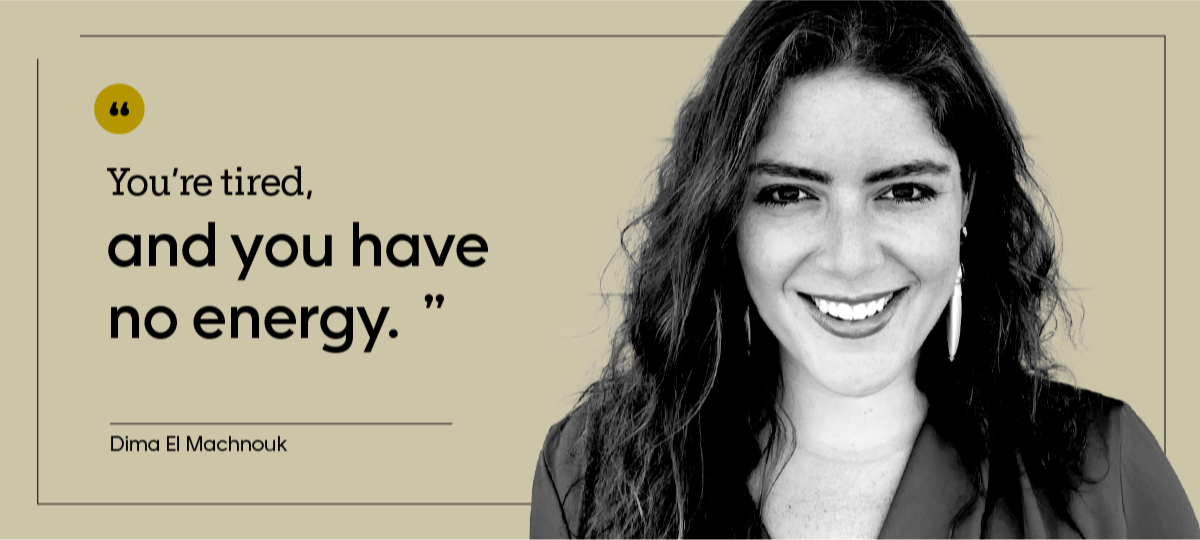
“It varies a lot between each woman. Comparison will kill you,” she says. “This is a very, very personal journey.”
Fertility preservation as ‘an insurance policy’
Beth Gulotta started thinking about freezing her eggs 2 years before she actually did it. Eventually, she decided that “it’s smart to have this as an insurance policy,” she says.
When she started the process, Beth was 37. Now she’s 42 and works in New York City as a psychotherapist, often helping other women who are navigating the egg-freezing decision. She got pregnant without using her frozen eggs and had a son when she was 40, but she might still use the eggs in the future.
“There are all these layers and complexities that go into making the decision,” she says. “It’s not, like, ‘I’m going to freeze my eggs,’ and it’s so easy. It’s emotionally hard. It's financially hard. It’s a lot.”
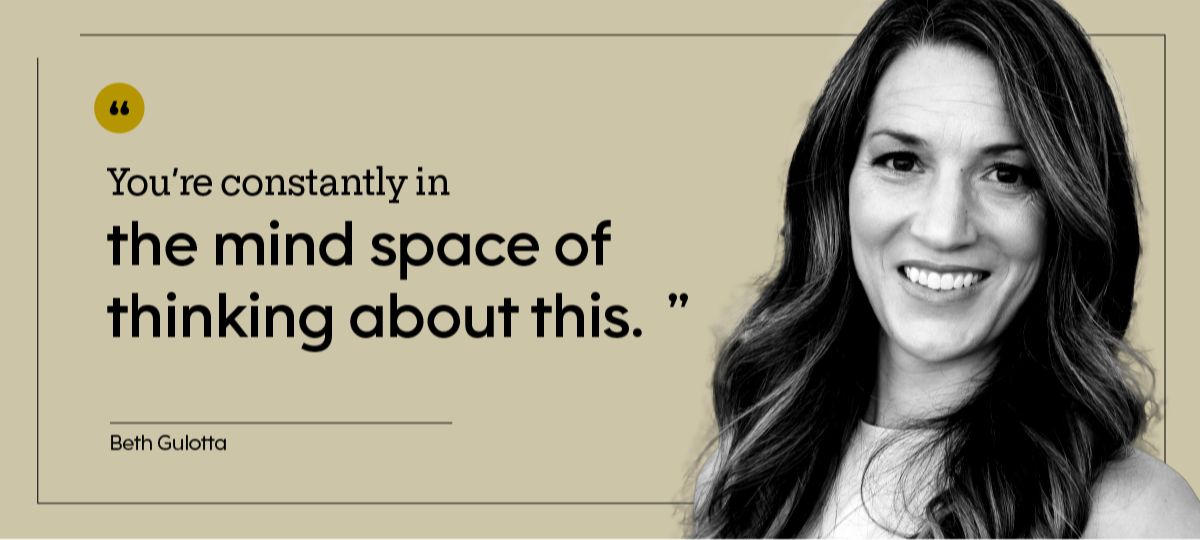
Once Beth had her initial consult, she started the process of stimulating her ovaries with fertility medications by giving herself injections every day for 2 weeks. Every morning or every other morning, she would go to the fertility clinic and get an ultrasound to have her follicle growth checked.
“Depending on how your body is responding to the medication, they might make changes [to the dosage],” she says. “It’s interesting because you go there and then you have to go get on with your normal day. But you’re constantly in the mind space of thinking about this.”
Physically, Beth felt good during the process. She didn’t experience bloating or major mood swings, though the entire process was emotional. She ended up with 14 eggs that are now frozen and ready in case she ever wants to use them.
Once she completed the process, “there was a sense of relief,” she says. “But that was kind of short-lived, because there was still this uncertainty and all these question marks. Like, ‘Am I going to be a mother? Are we going to do this?’”
Looking back, Beth says she’s glad she froze her eggs, and she hopes more people talk openly about the process. “There’s so many more women in this position, where they’re, like, ‘I need this insurance policy,’” she says. “It’s perfectly OK to be here and be considering this decision.”
Uncovering health issues — and hope
Jackie Simek embarked on her egg-freezing journey in July 2022, and it ended up being more complicated than she expected. But after 7 months, she had “miracle results,” she says. And she’s eager to provide hope to other women.
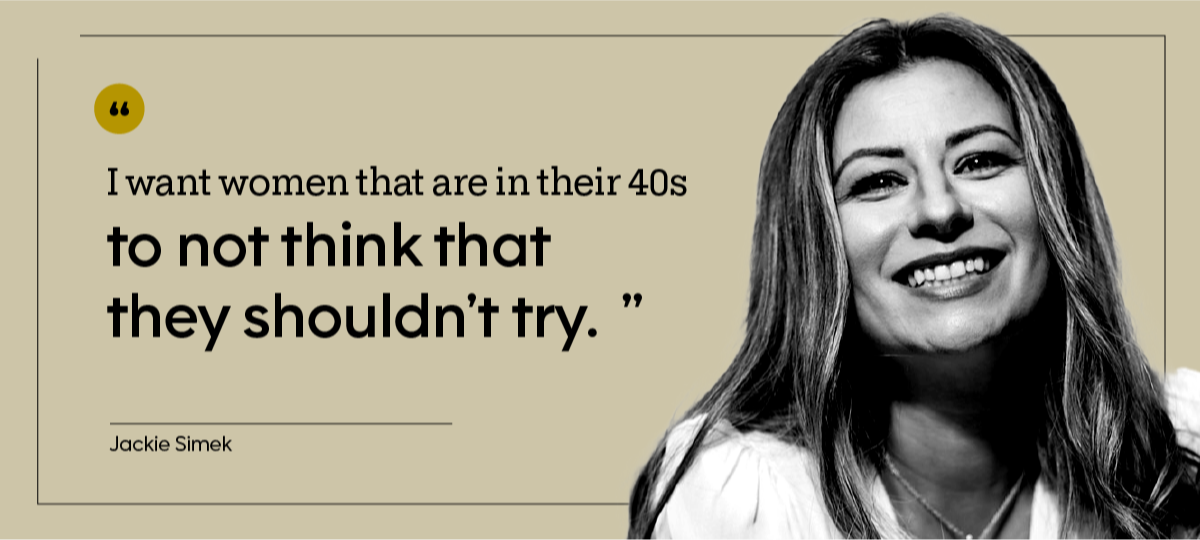
Jackie, a 41-year-old mindset coach based in Santa Barbara, California, started the process after a relationship ended and her friends encouraged her to take charge of her life. Her initial tests, which included an ultrasound and blood work, uncovered some health issues. One of her hormone levels was “off the charts,” as if she was already pregnant or breastfeeding. She had to get a brain MRI, which revealed she had an aneurysm next to her pituitary gland.
Because of the aneurysm, her doctor said she needed to put egg freezing on hold. And then she had multiple ovarian cysts, which also delayed the process.
While she was waiting, Jackie hired a fertility nutritionist, whom she credits with revamping her overall health and diet. Jackie focused on eating nutrient-dense foods and a lot of protein, and she eliminated empty calories. Eating well improved her mental health, too.
In January 2023, Jackie was finally cleared to begin ovarian stimulation and egg retrieval. She experienced almost zero side effects from the medications, she says. She was a “little shaky” giving herself shots at home, but then she learned that she could use an ice cube to numb the injection site.
“That was a total game-changer,” she says. “You don’t even feel it. You’re just, like, ‘OK, no big deal.’”
Jackie FaceTimed one of her friends every day when she gave herself a shot. When she was ready for the last step — a trigger shot that matures the eggs, so they’re ready for collection — she hosted a party on Zoom with a dozen friends. “A couple of them said prayers, and everyone had good energy,” she says.
Jackie started with three follicles and ended up with seven frozen eggs. “My doctor’s office referred to me as a miracle patient,” she says.
At the beginning of the process, she had pledged to herself that she would only do one round of egg freezing. She says she’s glad she set those boundaries and encourages others to do the same. Otherwise, “It’s very easy to get caught up and be, like, one more, one more.”
Looking back, she says she’s grateful the experience unfolded as it did — and for the outcome. “I want women that are in their 40s to not think that they shouldn’t try,” she says. “Did it go smoothly? Not the smoothest, but I had a great outcome. I’m really grateful.”
What does the doctor say?

Patricia Pinto-Garcia, MD, MPH
Medical Editor
More people are choosing to freeze their eggs, as waiting until later in life to start a family becomes more common. Thanks to advancing technology, egg freezing has become easier to access and more affordable than ever before. However, many individuals hesitate to embark on this journey because of concerns about the procedures involved, the cost, or both. But, as these stories demonstrate, undergoing egg freezing is manageable and can provide peace of mind for the future.
The process of egg freezing takes about 2 weeks. While your mornings may be intense because of almost daily blood work and ultrasounds, the remainder of your day won’t be significantly affected. You will need to give yourself injections, but you can do this anywhere, as long as you have an insulated container with a cold pack to store your medications.
You won’t be able to do vigorous exercise — like running — but you can continue with the rest of your routine without any changes. While some people choose to avoid alcohol, caffeine, and certain foods, there are no strict rules about what you can or cannot eat or drink during the process.
If concerns about side effects from the medications are holding you back, I hope these stories provide reassurance. Some individuals may experience side effects like bloating and mood changes, but some people don’t notice any changes at all. And if you do experience side effects, stay positive because they should go away within a few days after the egg retrieval.
If you have a fear of needles, talk about your options with your reproductive team. Working with a coach or therapist can help you learn techniques like meditation and mindfulness and build the confidence to give yourself injections. Injectable medications are increasingly common and used to treat various conditions, which means there are many people out there learning to navigate self-injections. And one benefit of this is that there are now more resources available than ever before to help people with taking these medications.
With planning, you can have a successful and relatively stress-free egg freezing journey, which may not be as unpleasant as you thought it would be.

Why trust our experts?




